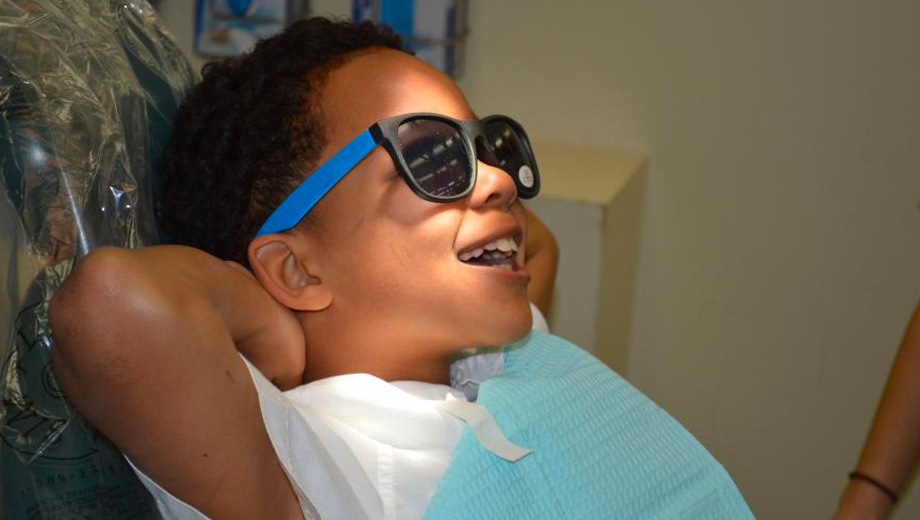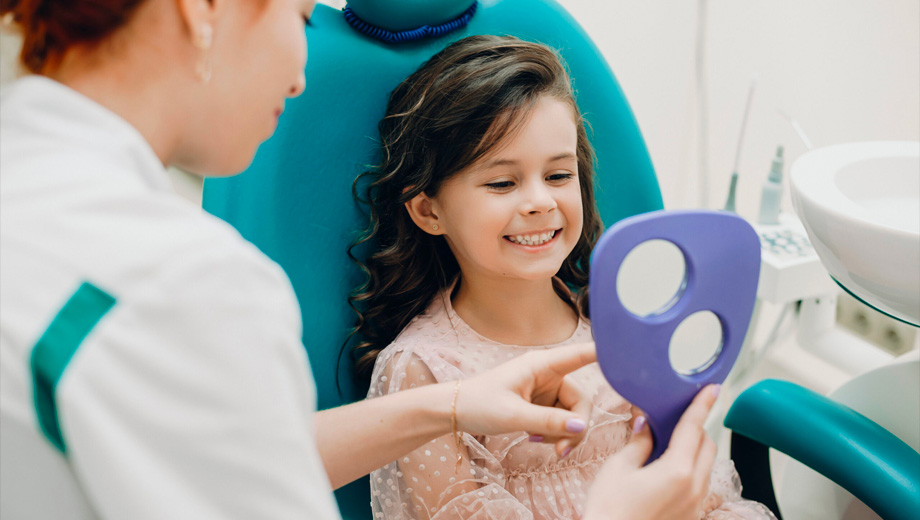Pediatric dentists are trained to treat children of all ages, from infancy to young adulthood. Adolescent dentistry is an oft overlooked part of pediatric dentistry, but it’s just as important! Teens have permanent teeth, but their faces and bodies are still growing. They need special dental care as their bodies change, especially if they have braces. It’s important to have a pediatric dentist who your teen trusts and listens to for oral health advice.
Tongue Piercing – Is it Really Cool?
More and more people have tongue piercing nowadays, but they do not think of the consequences until it is too late. No wonder the ADA is completely against it. Ask your dentist for more information about the risks involving piercing.
Tongue piercing is a common topic among adolescents, and it is something that it should not be taken lightly when asked by your teenage boy/girl at home. Adolescent oral health care is key for their health and growth, and as the tongue is covered with millions of bacteria 24/7, we have to consider all the risks that any oral piercing can cause. To begin with, serious infections will develop, and not just swelling from the piercing, but others such as bleeding, chipped or damaged teeth, hypersalivation, gingival recession, scarring/lacerations, brain abscess, nerve disorders, and more. And consider also that if your tongue swells too much, it can even close up off your airway.

After getting your tongue pierced you might experience acute, swelling, infection, difficulty to talk, increased saliva flow, gum and nerve damaged if the needle caught a blood vessel of nerve, and excessive bleeding.
Please follow the advice of the American Dental Association and skip the mouth jewelry.
- Tobacco – Bad News in Any Form
- It is our duty as adults to be aware of the acute health dangers of Tobacco and pass that to our children. Keep the conversation open and inform them constantly.
- Smokeless tobacco (aka. spit, chew, snuff) is popular among teens as they think is a safer option to cigarettes. But this is far from the truth, and actually even more dangerous and addictive. Studies have shown that one can of snuff a day contains as much nicotine as 60 cigarettes. And within three to four months of use, smokeless tobacco will cause periodontal disease and produce pre-cancerous lesions (Leukoplakias).
If your child is a tobacco user you should watch for the following that could be early signs of oral cancer:
- Any sore that does not heal.
- Check their lips for white and/or red leathery patches. They can also appear under the tongue.
- Painful mouth/lips with tenderness and/or numbness.
- Jaw and/or tongue signs can varied from difficulty chewing and swallowing. Speak can be affected and a change in the way the teeth/jaw fit/close together.
Oral cancer early signs are usually ignored but it is recommended for smokers to be on the lookout and check yourself constantly. Avoid later, painful, extensive procedures, which can include disfiguring surgeries or fatal consequences.
Prevention is always the best therapy. Tal to your child about avoiding tobacco in any form and being conscious about a healthy lifestyle.
General dentistry for teens with braces
Adolescence is a popular time for teens to get their teeth realigned with orthodontic treatment. Whether your child has braces or Invisalign, they will need to be extra careful with their dental hygiene. Straight teeth are no good if they’re cavity ridden!
At Kids Healthy Teeth, our Katy pediatric dentists can work in conjunction with your child’s orthodontist to ensure they’re getting the care they need. Flossing and brushing can be difficult when orthodontic appliances are in the way, but Dr. Chen and Dr. Griffith can show your child how to manuever their floss or toothbrush in order to properly clean their teeth.
Here are a few tips for dental hygiene with braces from our pediatric dentists in Katy:
- Avoid hard, sticky, chewy, crunchy foods like popcorn, seeds, gum, and caramel
- Drink beverages (other than water) with a straw
- Brush at least twice a day
- Floss regularly
- For Invisalign users, always keep the clear trays in their designated container
- For Invisalign users, clean the clear trays regularly
- After braces, wear retainers as directed by the orthodontist
- Drink water regularly
The treatment time for braces is usually between 18 – 24 months. This depends on how well your child takes care of their appliances. Even though they are seeing the orthodontist every 2 – 6 weeks to adjust their braces, your children still need to see the pediatric dentist at least every six months.
It’s still possible to get cavities or gum disease with braces on. Because that can delay treatment time, it’s important to see the pediatric dentist regularly. Our kids dentist in Katy can help your child prevent such complications with routine cleanings and exams. Talk to your child’s orthodontist to learn more about dental hygiene with braces.

